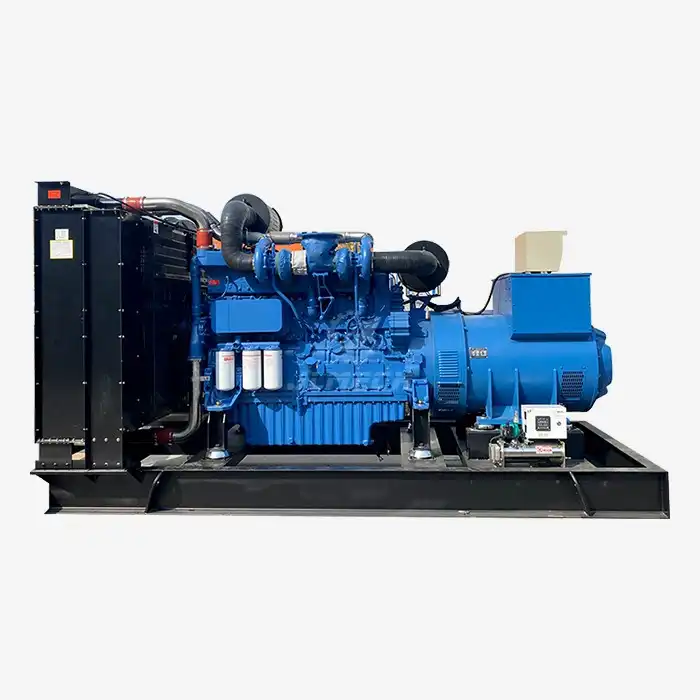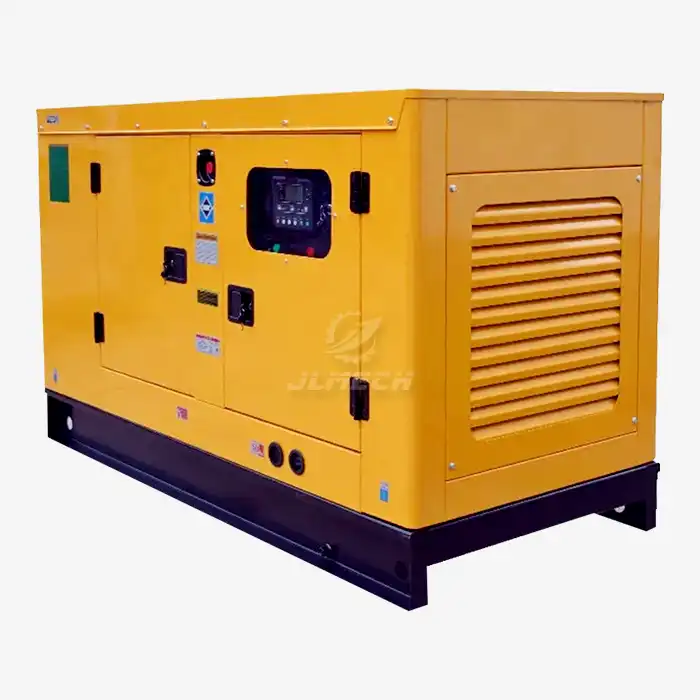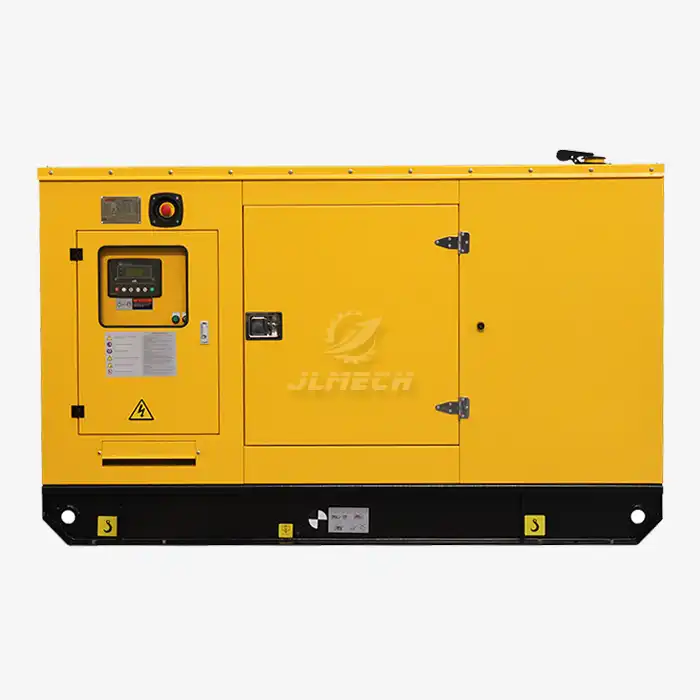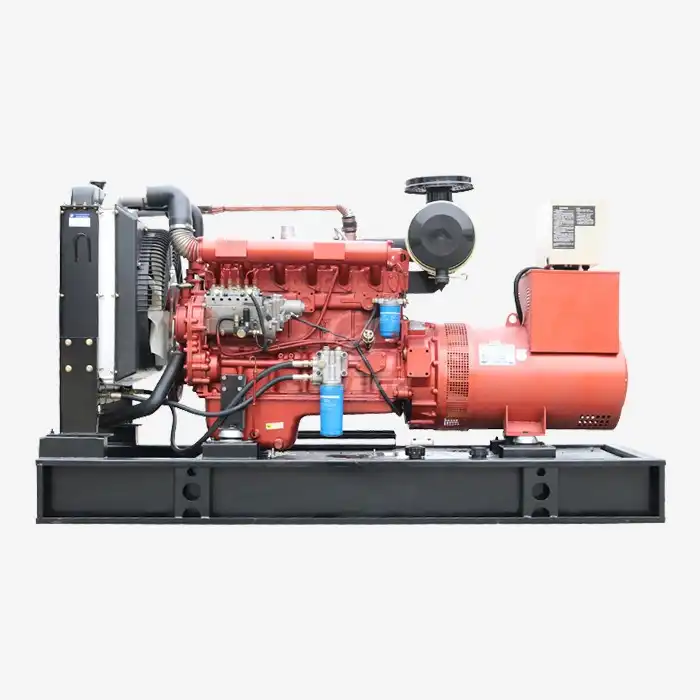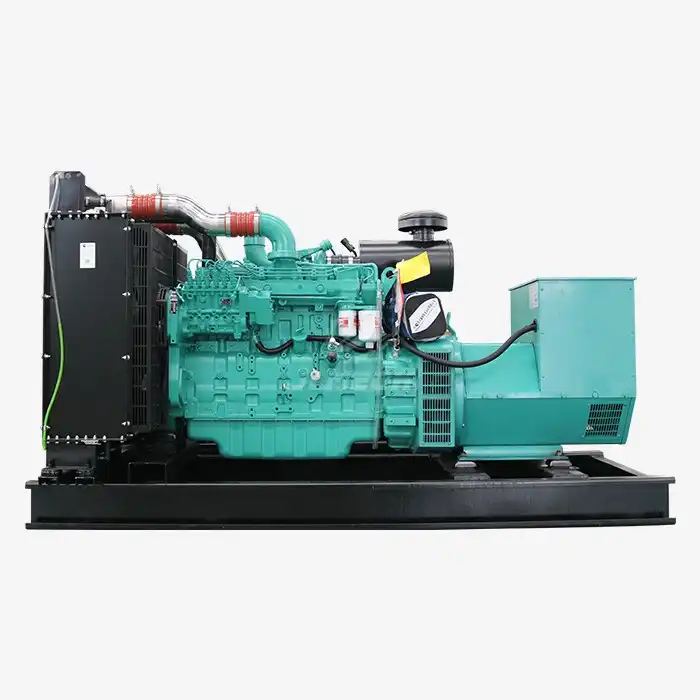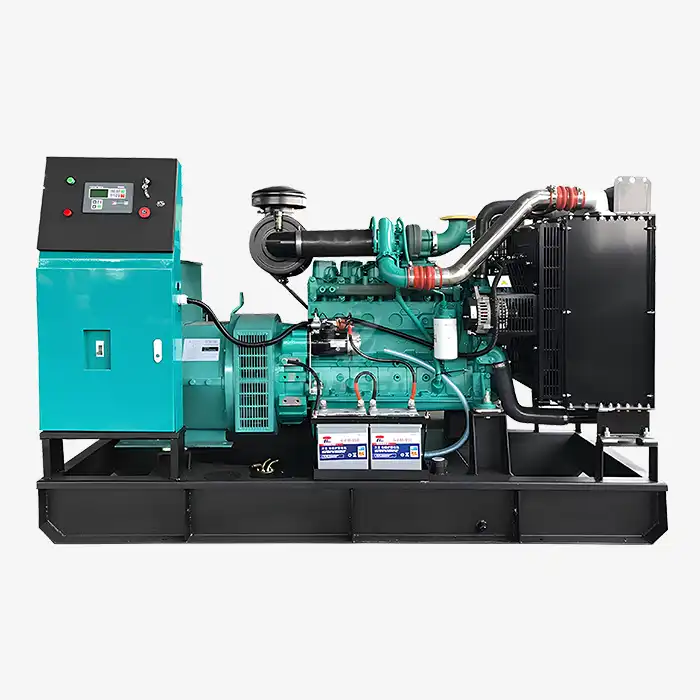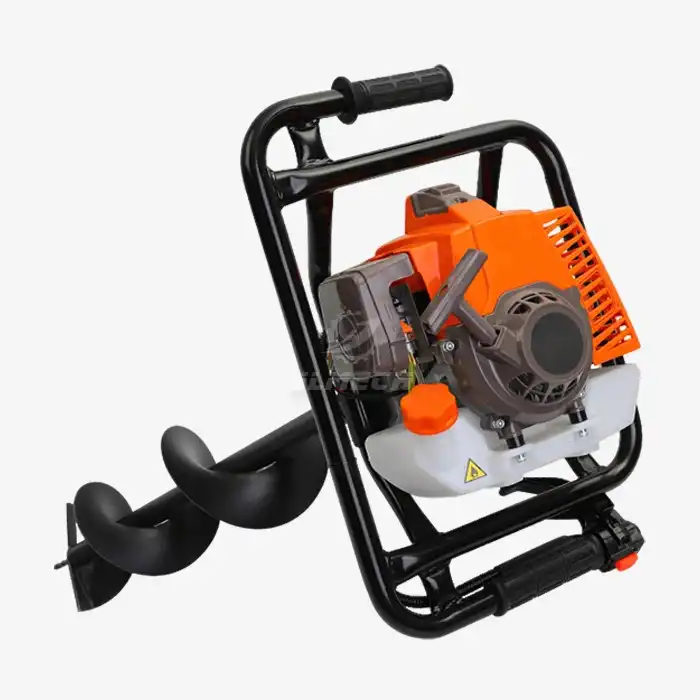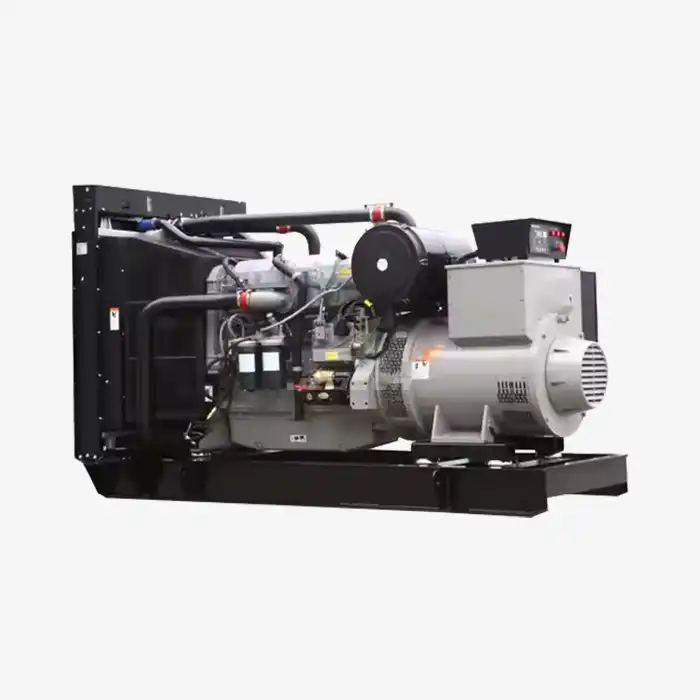Which oil is good for a diesel generator?
Selecting the optimal lubricant is critical for maximizing your diesel generator’s lifespan and operational reliability. The right diesel generator oil minimizes internal friction, protects against wear in extreme conditions, dissipates heat effectively, and prevents corrosive damage and sludge buildup. Neglecting oil specifications risks accelerated component degradation, unplanned downtime, and costly repairs. For industrial users, this directly impacts operational continuity and profitability. Understanding that diesel generator oil is not a generic commodity but an engineered solution forms the foundation of responsible generator ownership.
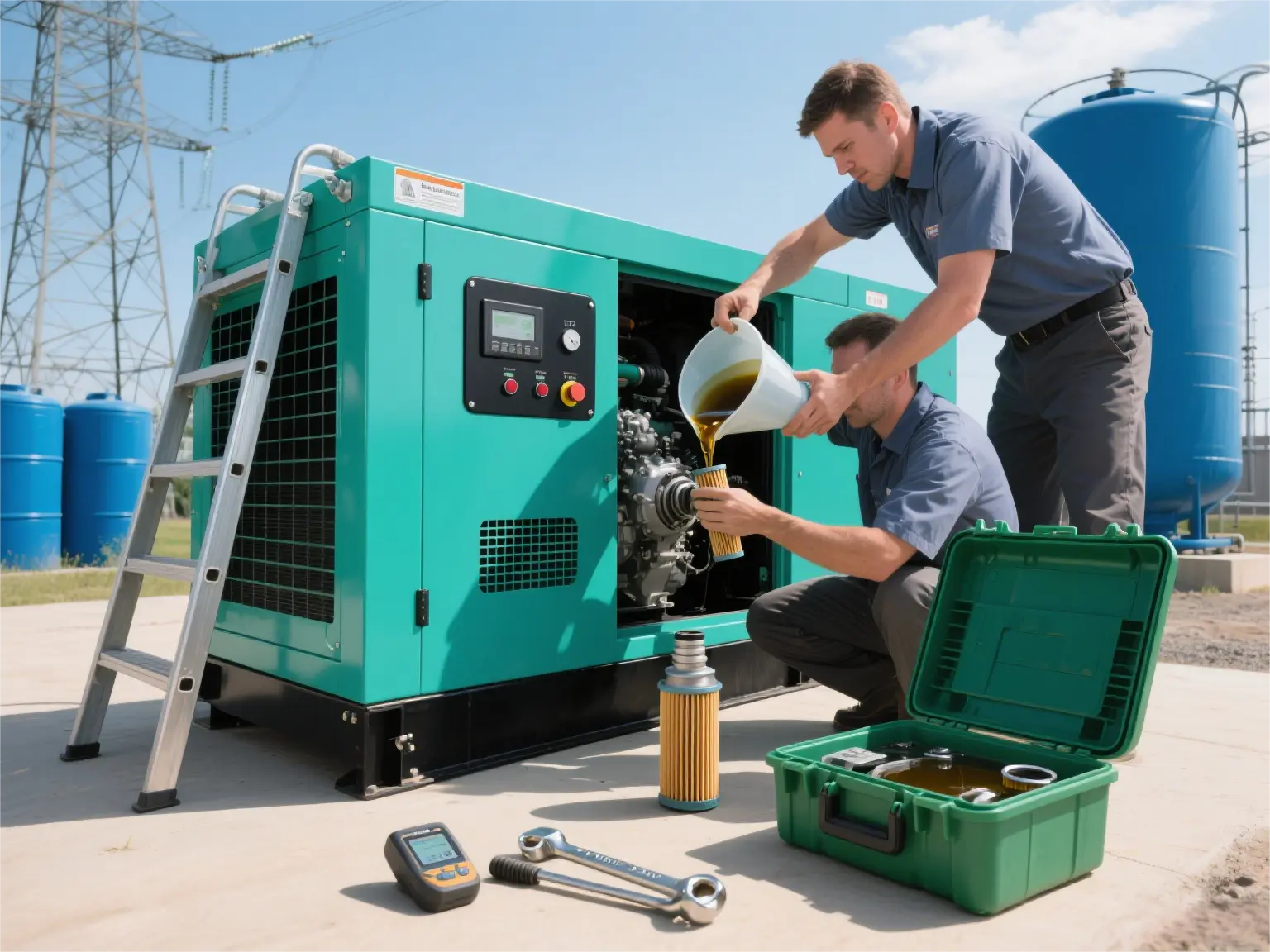
Understanding Oil Classifications
Navigating oil specifications ensures compatibility with your generator’s design and operating demands. Two primary standards define diesel generator oil performance:
Viscosity (SAE Grade): Indicated by numbers like 15W-40 or 10W-30, this measures flow characteristics. The "W" (Winter) number shows cold-start pumpability, while the second number indicates viscosity at 100°C. Generators in tropical climates often require higher-temperature viscosity (e.g., SAE 40), while colder regions benefit from multi-grades like 5W-40 for easier cold starts.
Performance Category (API Service Class): Denoted by letters (e.g., CK-4, FA-4), this signifies additive packages and protection levels. Modern high-efficiency generators typically mandate API CK-4 oils, offering enhanced oxidation stability, shear resistance, and protection against ash deposits compared to older CJ-4 or CI-4+ oils. Using an incorrect API class risks inadequate protection or compliance issues.
Always prioritize the oil grade explicitly recommended in your generator’s operation manual.
Selecting the Optimal Oil
Choosing the best diesel generator oil involves analyzing four critical operational factors:
Ambient Environment:
Temperature: Consistently high ambient temperatures (>30°C/86°F) demand higher viscosity oils (e.g., SAE 40 or 15W-40) to maintain film strength. Cold climates (< -10°C/14°F) necessitate lower "W" grades (e.g., 5W-30 or 0W-40) for reliable cold cranking and lubrication.
Humidity/Dust: High humidity or dusty environments require oils with superior corrosion inhibitors and dispersants to combat moisture ingress and contaminant suspension.
Operational Profile:
Load Factor: Generators running consistently above 75% load generate higher temperatures and stress. Use high-performance diesel generator oil (e.g., full synthetic API CK-4) with exceptional thermal and oxidation stability.
Duty Cycle: Standby/emergency units (short, infrequent runs) benefit from oils with superior corrosion inhibitors. Prime power/continuous units require oils optimized for extended drain intervals and soot handling.
Fuel Quality: Lower-quality fuels (high sulfur content) require oils with enhanced acid neutralization capabilities (higher TBN - Total Base Number).
Manufacturer Specifications:
Never compromise on the OEM’s mandated viscosity grade and API service class. Using non-approved diesel generator oil voids warranties and risks suboptimal protection. Consult your generator's Operation & Maintenance manual for the exact specification.Oil Type (Mineral vs. Synthetic):
Mineral Oils: Cost-effective for light-duty or standby units with regular oil changes.
Synthetic/Semi-Synthetic Oils: Offer superior performance in extreme temperatures, extended drain potential, better fuel efficiency (reduced friction), and enhanced protection under heavy loads or extended operation. Essential for demanding applications.
Key Selection Criteria Summary
| Factor | Consideration | Oil Characteristic Priority |
|---|---|---|
| Ambient Temp | High: >30°C / Low: < -10°C | Viscosity Grade (e.g., SAE 40, 5W-40) |
| Operational Load | High (>75%) / Continuous Duty | API CK-4, Synthetic, High TBN |
| Duty Cycle | Standby (Infrequent) / Prime (Continuous) | Corrosion Inhibitors / Soot Control |
| OEM Mandate | Specific SAE Grade & API Class | Non-negotiable compliance |
Conclusion
Investing in the correct diesel generator oil is a direct investment in your generator's reliability, efficiency, and longevity. Matching the oil's viscosity, API classification, and formulation (mineral/synthetic) to your specific operating environment, load profile, and manufacturer requirements is paramount. Regular oil analysis can further optimize change intervals and provide early warnings of potential issues.
Navigating oil specifications and operational demands can be complex. JLMECH, a leading diesel generator manufacturer, brings decades of engineering expertise and field-proven solutions to your unique power challenges. We don't just supply generators; we deliver comprehensive power reliability through unmatched technical support and a commitment to quality.
Our expert team can guide you in selecting not only the ideal diesel generator oil but also the optimal generator configuration for your specific application – whether for critical standby power, prime continuous operation, or harsh environmental conditions. We design robust solutions built for performance and durability.
Contact JLMECH today! Email our dedicated support team at skala@whjlmech.com to discuss your requirements, receive personalized recommendations, or learn about our custom-designed generator solutions and maintenance programs. Let us help you secure reliable power for your business.
References
1. ASTM International. *ASTM D975 - Standard Specification for Diesel Fuel Oils.
2. Society of Automotive Engineers (SAE). *SAE J300 - Engine Oil Viscosity Classification.
3. American Petroleum Institute (API). *Engine Oil Licensing and Certification System (EOLCS) - API Service Categories CK-4, FA-4*. Publication 1509.
4. International Council on Combustion Engines (CIMAC). Recommendations for Lubricating Oil Systems for Diesel Engines. WG7 "Lubricants".
5. Major Diesel Engine Manufacturers (e.g., Cummins, Caterpillar, MTU/Rolls-Royce, Volvo Penta). Public Technical Bulletins and Operator's Manuals (Specific recommendations vary by engine model/series. Always consult your OEM manual).
6. Lubrizol Corporation. The Lubrizol Book: A Practical Guide to Diesel Engine Lubrication. (Provides comprehensive technical background on additives and oil performance).



